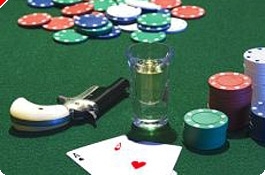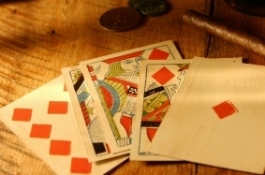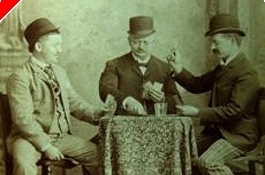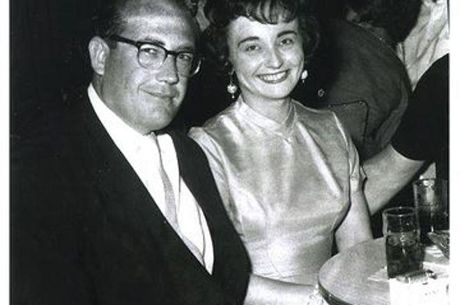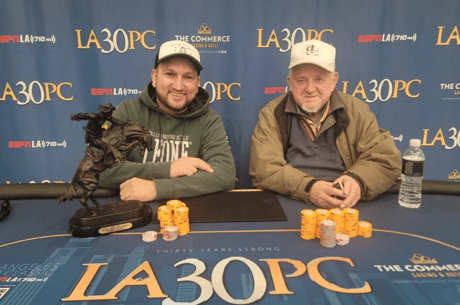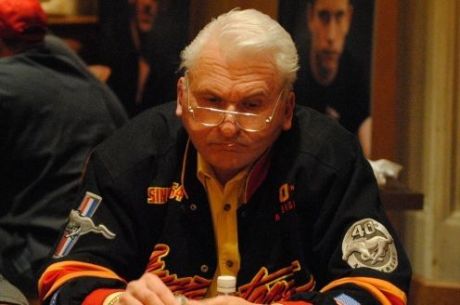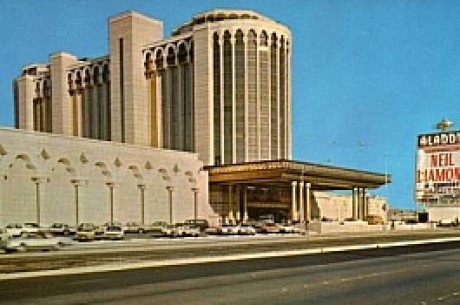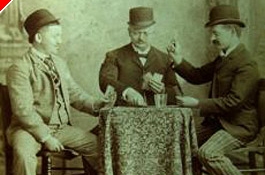From the Poker Vaults: Texas Boss Gamblers
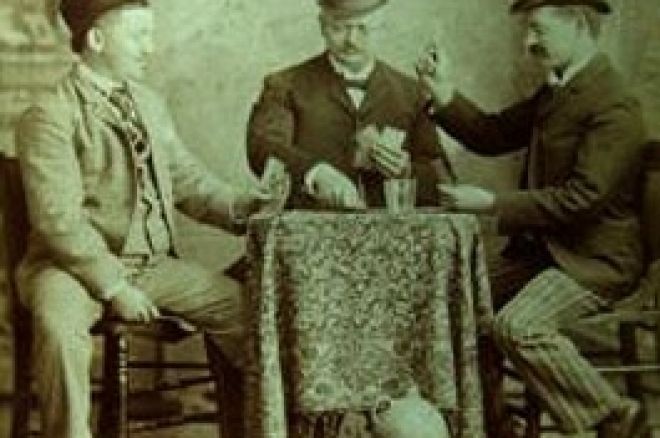
Even though poker was technically illegal, it wasn’t very hard to find a high-stakes game in Texas in the 1950s and 1960s as long as you had a good relationship with the local “boss gambler.” In this informal system the boss gambler served many roles, but his primary responsibility was convincing the police to look the other way while high-stakes poker was being played behind closed doors. For professional poker players in Texas, the boss gambler’s power was beyond measure. If he approved of you, you were allowed to play in the area’s biggest game with little fear of getting busted. If he didn’t, you had no choice but to move on down the road.
Fortunately, there were plenty of card games to be found. In fact, as long as you were willing to drive long distances, you could play high-stakes poker every night of the week. On Wednesdays and Thursdays, Martin Kramer hosted a lively game in Brenham. If it was a Tuesday, Friday, or Sunday, you could be sure to find a game at Hugh Briscoe’s place in Denton.
While Kramer and Briscoe spread games in their houses, most of the boss gamblers chose to use fraternal organizations as their venues. The reason was simple: hosting a poker game inside such an establishment allowed the boss gambler to legally take a rake, which, if a police officer ever asked, went towards paying the rent on the place or making a charitable contribution to the organization. Wink, wink.
Before he made a name for himself by making ten final tables at the World Series of Poker, Jesse Alto, the boss gambler in Corpus Christi, spread a popular high-stakes game in the local Elks Lodge. In Dallas, Troy Inman was in charge of a popular game at the AmVets Club. Because the club was located in a notoriously rough part of town, players had to show a membership card in order to get buzzed through the thick iron door at the entrance before they walked upstairs to the cardroom. One night, George McGann, a well-known contract killer, pulled out a gun after going broke and robbed everyone at the table. George being George, he played in the same game the very next day, and not a single person mentioned what had gone down the night before.
On another occasion Byron “Cowboy” Wolford found himself all alone in the AmVets Club playing no-limit poker heads-up with Inman. By the time they’d finished Wolford had won the entire club off his opponent. He ran the place for about five years during which time some of the most famous road gamblers of that era, including Robert A. Brooks, Bobby Baldwin, Everett Goulsby, and T. J. Cloutier, were frequent visitors. He spread limit games on a couple of tables, but for the most part they played no-limit.
In one of the most talked about hands ever played at the club, Hugh Briscoe flopped three jacks while his opponent, Speedy Meyers, flopped three fours. There was over $30,000 in the pot, and, hoping to lessen his chance of losing it, Briscoe took advantage of a house rule that said if a player threw five dollars into the pot he could have the cards cut at any point in a hand. With one card to come, the dealer cut the cards, burned one, and dealt the only card that could lose the hand for Briscoe, the case four.
There was no shortage of big games in Dallas. On Mondays, Wednesdays, and Fridays, Charlie Bissell hosted a high-stakes game at his house. Bissell was an ogre of a man, obese and mean-spirited. “He was the most hated man you could meet in poker,” said T.J. Cloutier, “but he ran a clean game and provided the best food you’ve ever had at a poker game so we played there anyway.”
Cloutier’s fondness for Bissell’s game wasn’t limited to the menu. The first twelve times he played there he won. The next time Cloutier showed up to play, however, Bissell confronted him. “I’m going to have to drop the latch on you unless you give me half your play,” he said. Cloutier thought it over and agreed to the arrangement because the game was so juicy. Even with Bissell taking half his winnings, Cloutier still managed to make over $200,000 a year in that game.
In the end Bissell got busted by the police, and in order to keep himself out of jail he became an informant. In his later years he could be found prowling around the parking lots of newly opened poker clubs jotting down license plate numbers for the police.
Out of all the underground poker clubs in Texas, none is more famous than the Redmen Club in Dallas. Originally established in the 1930s, the club has been visited at one point or another by every professional poker player from Texas, a list that starts with Johnny Moss and winds its way down through the ages until it gets to modern-day superstars like David Williams. With its seven poker tables, television screens on every wall, and a kitchen that produced decent if not spectacular chow, the club provided a fairly close approximation of a Las Vegas cardroom right in the middle of Dallas. For much of its existence, it was run by Cowboy Wolford’s brother Ray and a partner, but it finally got shut down for good right in 2006 right before Thanksgiving.
As famous as the Redmen Club was, it wasn’t the biggest game in Texas, at least not in the 1960s. That honor goes to a high-priced but not very well advertised game down in San Antonio, which you can read all about in the next installment of this column.

